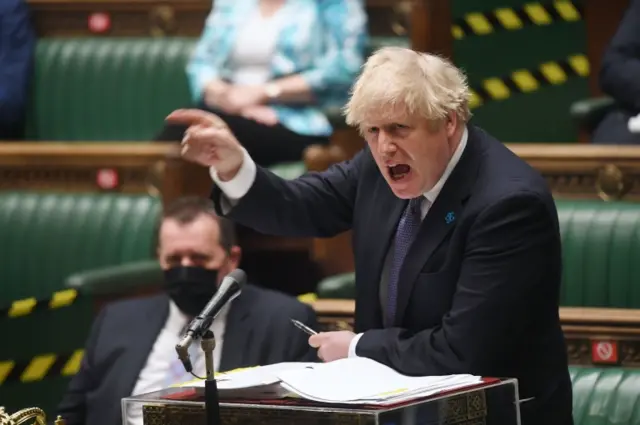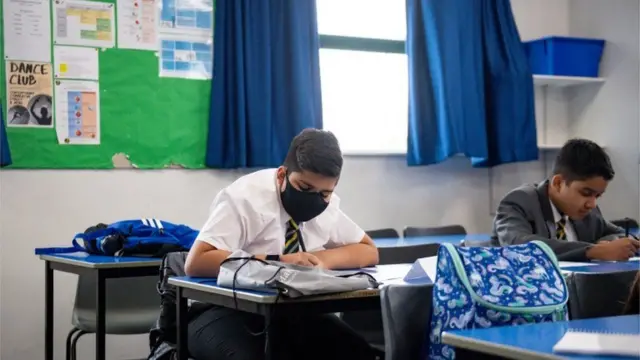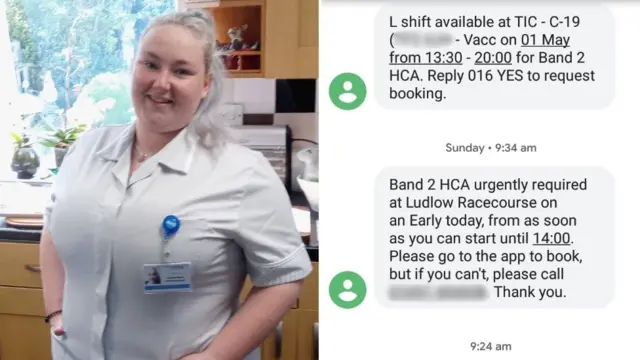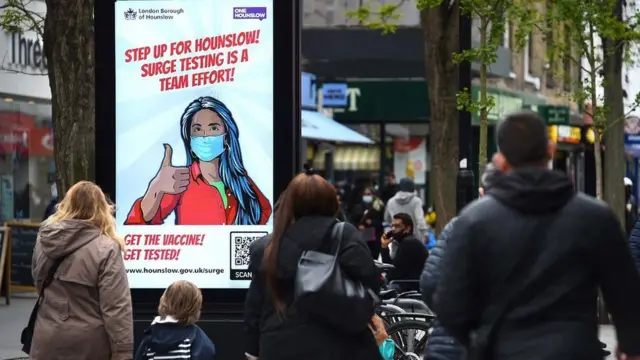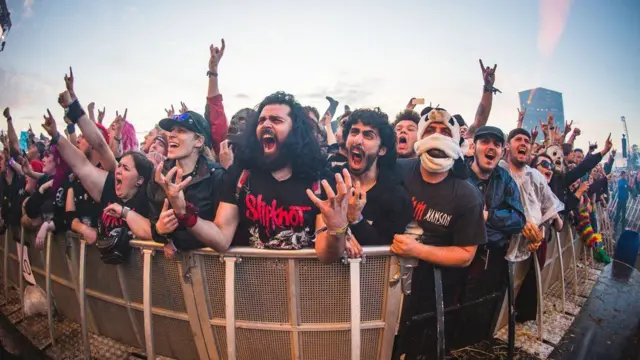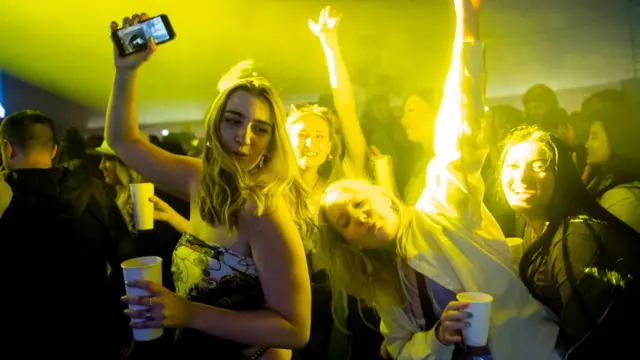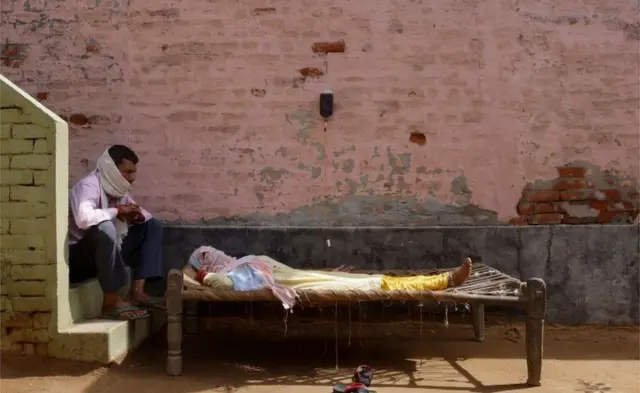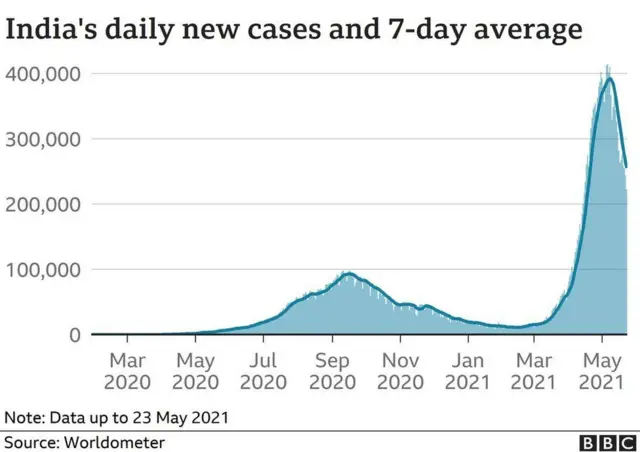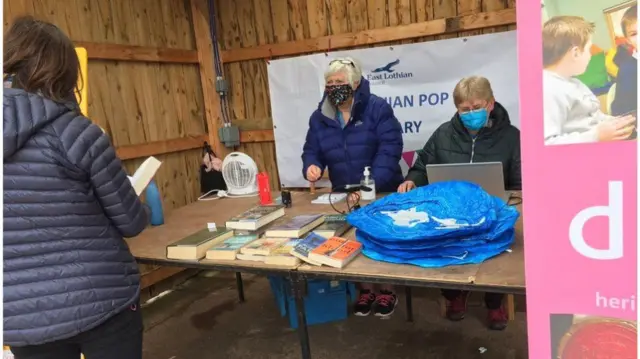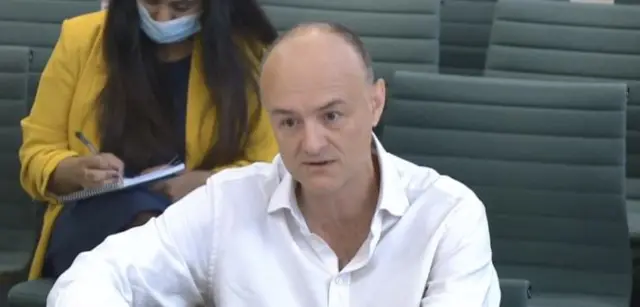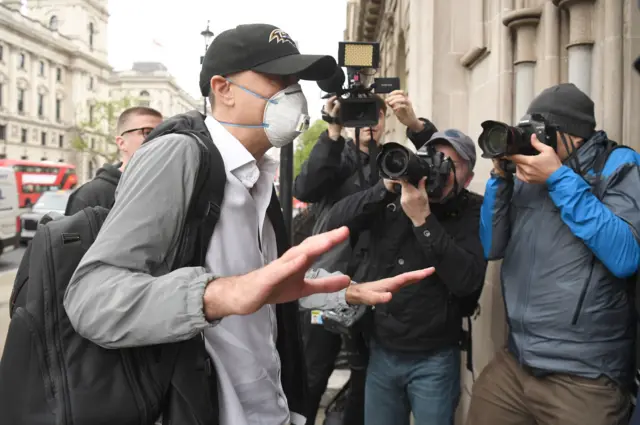PM denies senior ministers fell 'disastrously short' of expectationspublished at 12:14 British Summer Time 26 May 2021
Keir Starmer says almost a year ago to the day Boris Johnson described his former chief adviser, Dominic Cummings, as "in every respect acting responsibly, legally and with integrity".
He says this morning Cummings said senior ministers fell "disastrously short" of the standards the public had a right to expect and that lives were lost as a result.
He asks if the PM accepts this "central allegation" and that his inaction led to "needless deaths".
In response, the PM says "no", adding the matters will be reviewed at a public inquiry.
He adds that Starmer is "fixated as ever on the rear-view mirror".
Johnson says he thinks people are focused on moving forward and points out the vaccination programme is increasing "at such a rate that we can now ask everybody over 30 to come forward and get vaccinated".
